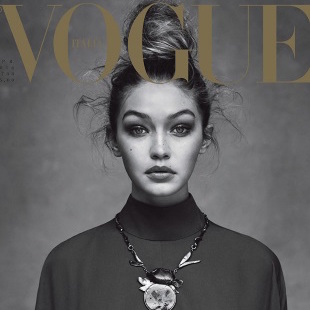Male models usually fall into one of two categories; they’re either debauchers who float around Paris and Milan losing money, or they’re smart businessmen who take their job seriously and use it as a platform to make a career outside of modelling. David Brooke is most certainly the latter. He’s modelled in 23 different countries, has a business degree, and is a part-owner of Skin Essence Organics. The Business Model talked to him about the business skills he’s learned from modelling, and why he’s been as successful as he has.
The Business Model: Did you take your job seriously from the beginning of your modelling career?
David Brooke: Well, I started modelling when I was 18 years-old. I went on my first trip to Asia, and I didn’t really know what to think. I went to Taiwan, to Tokyo – but I didn’t even know where they were on a map. I just started asking questions. From there I learned how much money I could potentially earn, and I realized that to do that I had to take it seriously.
TBM: Was there a turning point when you made that change?
DB: When I was 23 was when things really changed. I reduced my travelling to part-time, so I could go back to school and get a business degree. That was also the year that I bought my company, Skin Essence Organics. When I began treating modelling as a business opportunity, results followed. When I was in Turkey making $1500-2000 per day for catalogue work, I met other models who were making $300 per day for the same thing.
TBM: Do you think that men have an easier time being taken seriously as business people?
DB: Yes and no. Men certainly have it easier in the business world in general. And in modelling, if I were to gain 10 pounds, I’d still work, just in a different capacity. Women have a harder time in terms of their freedom with their bodies. Outside of that though, I think what matters more than your gender is your mentality, and your social skills.
TBM: Outside of the modelling world, have business partners, colleagues, or investors ever misjudged you because of your modelling career?
DB: People in general tend to pre-judge models as arrogant or stupid. But it really hasn’t hampered me. It’s always been an advantage. If someone is assuming I’m a certain kind of person from the way that I look, I usually prove them wrong after I’ve talked with them for 60 seconds. Because of all the experiences I’ve had in the 23 different countries I’ve modelled in, people actually end up taking me more seriously. When I’m working at a convention representing my company Skin Essence, they’ll put “David Brooke, male model” on the program and I always get bigger crowds.
TBM: Have you ever encountered people on set who would rather that you, as the model, just be seen and not heard?
DB: That really depends on the person that you are and whether or not you have good social skills. If people want you to shut up, it’s usually because you’re the one with the problem and coming across as disinterested, arrogant, or uneducated.
Mr. brooke in Milano
Mr. brooke in Milano
TBM: What business skills has modelling taught you?
DB: The biggest one is probably independence. When you’re on the other side of the world, you’ve had a rough day, and you really want to just call home and hear a familiar voice, you can’t always do that because there’s a 12-hour time difference. You really get to know who you are when you’re forced to be alone like that. Plus you learn about time management, health and nutrition, languages, a lot about culture, and geography. And look at castings! I mean, talk about transferable skills. Everyday your job is to go in and make that client want to book you. You have to make a connection in that short window. I went to a casting in Milan once where they were looking for a blond, long haired, editorial model – I wasn’t even supposed to go to that casting – but I booked it, because I can sell myself.
TBM: Why do you think you’ve been a successful model?
DB: Firstly, genetics. That’s a very large part of it. I was born with this bone structure, this height, and I naturally carry low body fat. Secondly, discipline. Especially in maintaining good health. I don’t drink alcohol at all, and I only eat food that grows, or eats something that grows. I break my own rules once in a while and I’ll have some chips or whatever, but moderation is what’s really key. Thirdly, is my type-A personality. I’m outgoing, social, I’m interested in other people – and that makes me likeable. It’s really important that clients and your agents like you. If your booker knows that they can be confident in you and your skills, they’re more likely to push you for bigger jobs because you also make the agency look good. Also, I’d have to say that my religion’s helped me a lot. About six months before I began modelling, I developed an allergy to alcohol. And I don’t think that it was just an allergy, I think that was someone else looking out for me. When you’re sober, you’re much more likely to avoid bad decision-making. Lastly, is my ambition and drive. I’m always eager to learn and I asked a lot of questions when I was starting out. I’d ask other models what they did right in their career, what they wish they’d done. One guy told me that he really wished that he’d gone back to school at 23. So I did exactly that.
TBM: What advice would you give to younger models?
DB: The modelling industry can feel like an emotional rollercoaster, but you need to treat it like a business. Take the compliments and the insults with a grain of salt. If something doesn’t feel right, don’t do it. Everything we do becomes a memory, so if you don’t want to remember something, you probably shouldn’t do it to begin with. You teach people how to treat you, by how you treat them and how you carry yourself; so, be confident in what you do.







Comments 0